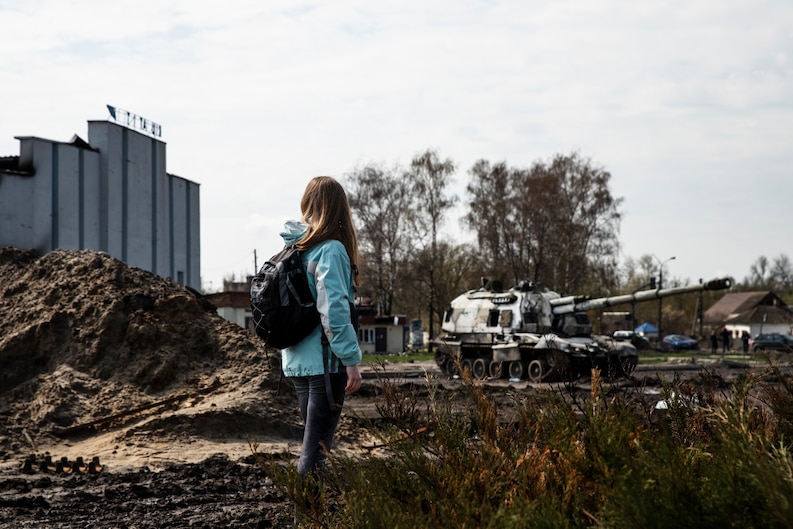Get ready now to face the uncertainty of tomorrow!

In times of crisis or emergency situations, the initial 72 hours are critical for survival. Being prepared and equipped with essential knowledge and supplies can make a significant difference in navigating through these crucial hours. This comprehensive guide aims to empower individuals with the necessary skills, strategies, and resources to ensure survival during the critical first 72 hours of an emergency.
The Importance of Preparedness: Understanding the 72-Hour Rule
The concept of the first 72 hours holds immense significance in emergency preparedness. It is widely acknowledged that in the aftermath of a disaster or emergency, access to external aid or support might be limited for up to 72 hours. Therefore, being self-sufficient and adequately equipped during this window is crucial for survival.
Understanding the unpredictability of emergencies, whether natural disasters, power outages, or unforeseen events, highlights the importance of proactive preparation. Building an emergency kit, formulating a family emergency plan, and acquiring essential survival skills become integral components of ensuring readiness during this critical period.
Building Your 72-Hour Emergency Kit: Essential Supplies and Resources
A well-curated emergency kit is the cornerstone of preparedness during the first 72 hours. It should contain vital supplies catering to basic needs such as shelter, water, food, medical supplies, communication, and personal safety. Some key items to include:
- Water and Purification Methods: Store at least one gallon of water per person per day for three days, along with purification methods such as water purification tablets or filters.
- Non-Perishable Food: Stock up on canned goods, energy bars, and other non-perishable food items that require minimal preparation and have a long shelf life.
- First Aid Kit: Include essential medical supplies, prescription medications, bandages, antiseptics, and any necessary personal medications.
- Emergency Shelter: Pack lightweight tents, sleeping bags, blankets, or tarps for temporary shelter and protection from the elements.
- Tools and Multi-Purpose Items: Carry a multi-tool, flashlight, batteries, matches, a whistle, duct tape, and a portable radio for communication.
IF You Don’t Know The Answers To These Questions – You Need This Free Book

Developing a Survival Mindset: Skills and Strategies
Surviving the first 72 hours also requires a resilient mindset and practical survival skills. Consider learning and practicing the following:
- Basic First Aid: Understanding basic first aid procedures can be invaluable in emergency situations, allowing you to provide immediate care until professional help arrives.
- Navigation and Orientation: Familiarize yourself with basic navigation techniques using maps, compasses, or GPS devices to find your way if traditional means of communication are unavailable.
- Fire Starting and Shelter Building: Mastering the art of starting a fire and constructing improvised shelters from available materials can provide warmth, protection, and a sense of security.
- Emergency Communication: Establish alternative means of communication, such as memorizing important phone numbers, using signal devices, or utilizing communication apps that work offline.
Implementing Your Emergency Plan: Actions and Decision-Making
Having a well-devised emergency plan in place significantly enhances your ability to navigate through the first 72 hours effectively. Ensure that everyone in your household is familiar with the plan and knows their roles and responsibilities:
- Evacuation Procedures: Determine evacuation routes, safe meeting points, and alternate shelter options in case your primary location is compromised.
- Stay Informed: Stay updated on weather forecasts, emergency alerts, and official guidance from local authorities through portable radios or emergency alert systems.
- Adaptability and Decision-Making: Be adaptable and ready to make quick, informed decisions based on the situation. Prioritize safety and consider your resources when making decisions.
- Regular Review and Updates: Periodically review and update your emergency plan and supplies to accommodate changing needs or circumstances.
Conclusion
Mastering the first 72 hours of an emergency hinges on preparedness, resourcefulness, and a proactive approach to survival. By assembling a well-equipped emergency kit, acquiring essential skills, and formulating a comprehensive emergency plan, individuals can significantly increase their chances of survival and navigate through challenging circumstances with confidence.
Remember, the first 72 hours are critical, and being self-sufficient and well-prepared empowers individuals and families to weather emergencies and unforeseen events, ensuring their survival until help arrives or conditions improve. Embrace preparedness as a path toward survival and resilience in the face of uncertainty.






